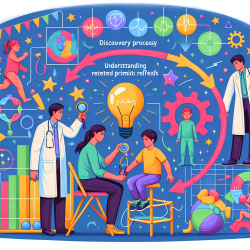Introduction: The Power of Research in Speech-Language Pathology
As practitioners dedicated to enhancing the communication skills of children, it is crucial to base our interventions on robust research. The study titled "Profile of language abilities in a sample of adults with developmental disorders" by Bradshaw et al. (2021) provides valuable insights that can be translated into practice, especially in educational settings. This blog will explore key findings from the study and discuss how they can inform and improve the support we provide to children with developmental disorders.
Understanding the Study: Key Findings
The research investigated language abilities in high-achieving adults with developmental disorders, including dyslexia, dyspraxia, autism, and specific learning disorders (SpLD). The study revealed that both dyslexic and non-dyslexic groups exhibited similar impairments in word reading, working memory, processing speed, and oral language. Interestingly, the usual pattern of impaired phonological skills was observed in dyslexic participants, yet their non-verbal intelligence and vocabulary remained intact.
One of the most compelling findings was that diagnostic labels were not reliable predictors of language ability similarities among participants. Instead, a data-driven clustering analysis indicated that support needs should be assessed on a case-by-case basis, rather than relying solely on diagnostic categories.
Implications for Practitioners: Moving Beyond Labels
These findings underscore the importance of individualized assessments in educational and therapeutic settings. Here are some actionable steps practitioners can take:
- Embrace Data-Driven Assessments: Utilize comprehensive evaluations that go beyond diagnostic labels to identify specific areas of need in each child.
- Focus on Strengths and Weaknesses: Tailor interventions to address both the strengths and weaknesses identified in language assessments, rather than applying a one-size-fits-all approach.
- Promote Collaborative Support: Work closely with educators, parents, and other professionals to develop a holistic support plan that caters to the unique needs of each child.
- Encourage Ongoing Research: Stay informed about the latest research and consider participating in studies to contribute to the growing body of knowledge in speech-language pathology.
Conclusion: A Call to Action
By integrating the insights from this study into our practice, we can better support children with developmental disorders, ensuring they receive the personalized interventions they need to thrive. As practitioners, it is our responsibility to continuously seek out and apply evidence-based strategies that will lead to successful outcomes for the children we serve.
To read the original research paper, please follow this link: Profile of language abilities in a sample of adults with developmental disorders.










